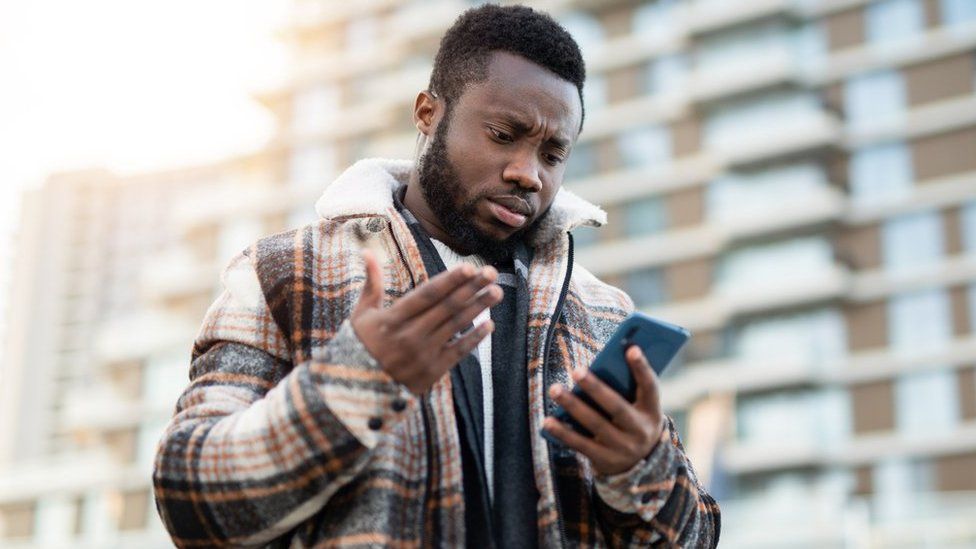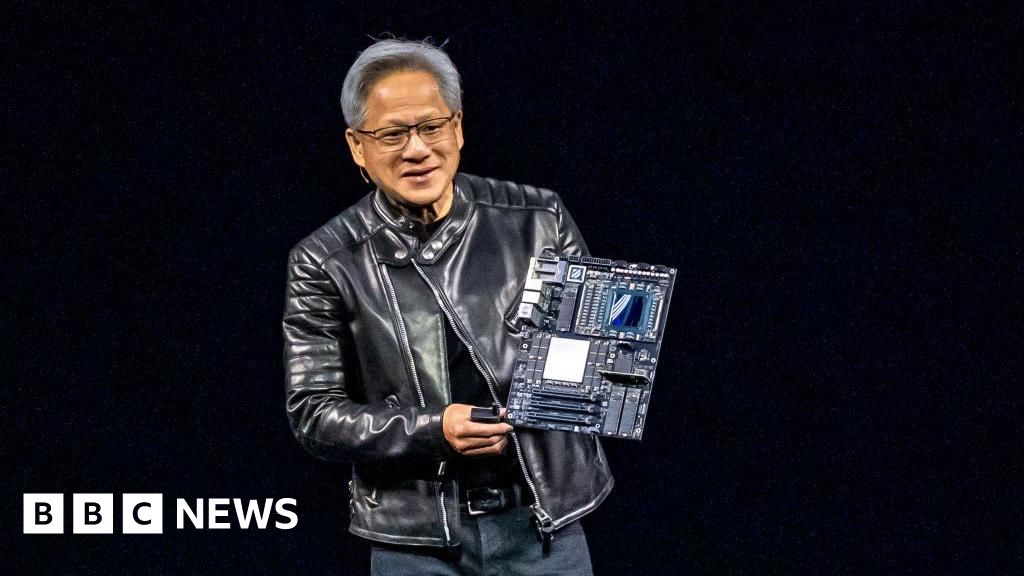ARTICLE AD BOX
 Image source, Getty Images
Image source, Getty Images
By Zoe Kleinman
Technology editor
In a weird way, a rock gig first led me to question the UK's 5G provision.
I was at a sold-out concert at London's O2 arena, had 5G reception on my phone but was unable to share the moment on social media.
I thought that was odd - 5G was designed to cope with lots of devices using it simultaneously, something its predecessors 4G and 3G struggled with as anyone who has tried to use their phone in a crowded place such as a festival or football match will probably have noticed.
A few days later, trying to use Google Maps, with 5G on my phone and apparently decent reception, I received an error message - the signal was too poor for the app to function.
I started taking screenshots of these messages and ended up with quite a library. Eventually, I shared some online - and then, other frustrated 5G users contacted me.
We had various handsets and network providers but were all experiencing similar problems.
Patrick, from Bristol, told me he could not refresh social-media apps, load maps or check Amazon order statuses while using 5G.
"It's really frustrating," he said.
"5G was promised to be incredibly fast across the country. And if anything, it's worse than what we had already. It's not acceptable."
Jon, from Yorkshire, said he could not access any data via 5G during his train commute to Leeds, which affected his job.
"It makes my phone pretty worthless," he said.
A woman from Manchester said any 5G coverage appearing was "still a surprise".
And in Glasgow city centre, some colleagues and I found the 5G speed half that of the 4G, according to a basic speed checker.
The industry insists, still only three years in to a 10-year rollout plan, everything is fine.
5G has received lots of investment from the mobile operators and government and is hailed as a faster, more reliable connection.
But it has faced several setbacks.
5G requires a lot of masts because it delivers faster speeds over shorter distances.
With a higher frequency than 4G, some say it is harmful - although, tests have found the opposite. And it has been falsely linked to the spread of Covid-19.
Gareth Elliott, of the industry trade association Mobile UK, said local objections and the need to obtain planning permission were obstacles to expanding national coverage.
"We are working with communities, working with local authorities and we do aim to extend 5G coverage as quickly as possible," he said.
"The closer you live or work to a mast, the better signal you have."
In 2020, UK mobile networks were ordered to strip out kit made by Chinese technology company Huawei from all 5G infrastructure, after it was deemed a national security risk.
Image source, Getty Images
The deadlines for completing this were recently extended.
The UK's major networks, EE, O2, Three and Vodafone, told me they were on track to meet them, happy with the progress of their rollouts, their customers generally satisfied with the service - and people tended not to notice when networks were working efficiently.
But analyst Ian Fogg, from the company OpenSignal, said the 5G experience had been oversold by over-enthusiastic marketeers.
Coverage was generally better in cities and operators varied, he said - but, overall, it was still an improvement on 4G.
Image source, Getty Images
"Companies talking up 5G are often thinking about not just about what's here now but what we'll be having in 18 months, two or three years time. So there's that expectation of, 'This is what it's going to do.' We're seeing some of that improvement now - but not all of it," Mr Fogg said.
CCS Insight chief analyst Ben Wood agrees.
"The networks need to be very careful that there is not a huge gap between the rhetoric and the reality of the experience," he said.
The Department for Digital Culture, Media and Sport, which oversees mobile networks, and Ofcom, the regulator, declined to be interviewed - but Ofcom did tell me only about 10% of people in the UK currently owned 5G-enabled phones.
Most new devices do now work on 5G - but people are holding on to older handsets for longer. 5G contracts do not cost extra - but it does burn through data a lot more quickly for those not on unlimited plans.
And there is another issue.
"We are using something called non-standalone 5G, which is the very first version of 5G," Mr Wood said.
"It only delivers the 5G signal from the handset to the tower. Everything behind that is still 4G.
"The goal is to get to a fully integrated end-to-end 5G network - but in the UK, no networks have deployed that yet."
And this could have a significant impact on the experience.
Why is 5G so important?
The aim is for 5G to be the infrastructure that will one day underpin driverless cars communicating with each other and street furniture such as signs and traffic lights.
It can reliably connect hospitals with ambulances, to share patient data and treatment advice as they travel.
And it enables better virtual- and mixed-reality environments for teaching, training and socialising.
At the 5G and 6G Innovation Centre, at Surrey University, I tried out a demo using a basic robot.
With 5G connectivity, the robot responded immediately to my commands, via an Xbox controller, for it to move.
But when we switched down to 4G, the momentary delay between me touching the controller and the robot receiving the instruction - this is called latency - resulted in drama. It faltered, and then fell rather heavily, taking me down with it.
The difference between the two was, quite literally, striking. But it would be - there was a 5G mast directly outside the window.
You can follow Zoe Kleinman on Twitter (@zsk).

 2 years ago
65
2 years ago
65








 English (US) ·
English (US) ·